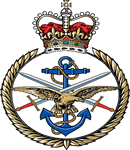Commemorated: | |||
| 1. Memorial: | Basra Memorial | Panel 56. Basra | |
| 2. Book: | The (1921) Masonic Roll of Honour 1914-1918 | Pg.126 | |
Awards & Titles: | |||
Family :
Indian NationalityService Life:
Campaigns:
- The First World War 1914-1918, World-wide.
| Unit / Ship / Est.: 97th Deccan Infantry |
| Action : Mesopotamia |
At the outbreak of war the British, together with Indian troops, resolved to protect oil supply in the region by occupying the area around Basra at Abadan. This evolved into a series of campaigns towards Baghdad against the Turkish forces as Mesopotamia (modern Iraq) was part of the Ottoman Empire. Meetings in late 1914 and into 1915 led the Viceroy and Indian government at Simla to reconsider the limited involvement of troops and they decided to order further advances with a view to securing the Shatt-al-Hai, a canal connecting the Tigris and Euphrates river and potentially capturing Baghdad. The British government disagreed and wished to conserve forces for the Western front. The Viceroy was given permission to act as it wished, but told in no uncertain terms that no reinforcements should be expected.
The initial success experienced by the British and Indian forces quickly disintegrated in the face of Ottoman opposition. The Siege of Kut-Al-Amara began on 7th December with the besieging of an 8,000 strong British-Indian garrison in the town of Kut, 100 miles south of Baghdad, by the Ottoman Army. These campaigns produced few tactical benefits, indeed the catastrophic defeat at Kut in 1916 was a major setback. Badhdad was eventually taken in March 1917.
The conditions in Mesopotamia were dreadful. The climate, sickness and disease produced large losses in addition to battle casualties. About as many men died of disease as were killed in action. The Mesopotamia front was part of a strategy hoping for success at lower cost than the Western Front but no decisive victory was achieved.
Detail :
The third party to enter the Turkish trenches consisted of about ten or fifteen men
under Captain R. Jenkins and Lieut. De Lisle with Subedar Gayani Singh and Jemadar Hanumant Singh. As this party approached the trenches, Captain Jenkins was killed and De Lisle and the two Indian officers severely wounded. De Lisle was last seen making his way in the direction of the river bank and it is thought that he succumbed to his wounds en route.
Only about seven of the third party reached the enemy’s trenches, where they remained imtil driven out by the Turkish counter-attack. They also suffered considerable casualties as they retired, and of the party only Havildar Hazari Singh and Naik Pran Singh, with one or two men, reached safety.
Citations & Commemorations :
"Many were the deeds of gallantry performed by the officersand men of the Regiment during this day’s action. Amongst
the most conspicuous was the behaviour of Captain R. A. Jenkins
who, having found Lieutenant Maurice of the 87th Dogras lying
severely wounded outside his trench, carried him to a place of
safety in the rear under very heavy fire."
extract from 7th January 1916
The Story of the 97 th Deccan Infantry
BY
MAJOR W, C. KIRKWOOD. O.B.E.
Masonic :
| Type | Lodge Name and No. | Province/District : |
|---|---|---|
| Mother : | Alexandra No. 1065 E.C. | Bombay |
Initiated | Passed | Raised |
30th November -0001 | 30th November -0001 | 30th November -0001 |
Joining Member of Alexandra Lodge No. 1065 on 6th June, 1910, but is shown resigned 31/1/1916 after his death. There is no indication of which Lodge he came from. It is possible that his mother lodge is Golconda, but there are uncertainties which make it difficult to confirm.
Source :
The project globally acknowledges the following as sources of information for research across the whole database:
- The Commonwealth War Graves Commission
- The (UK) National Archives
- Ancestry.co.uk - Genealogy, Family Trees & Family History online
- ugle.org.uk - The records of the United Grand Lodge of England including the Library and Museum of Freemasonry
Additional Source:
- Founder Researchers : Paul Masters & Mike McCarthy
- Researcher : Bruce Littley

